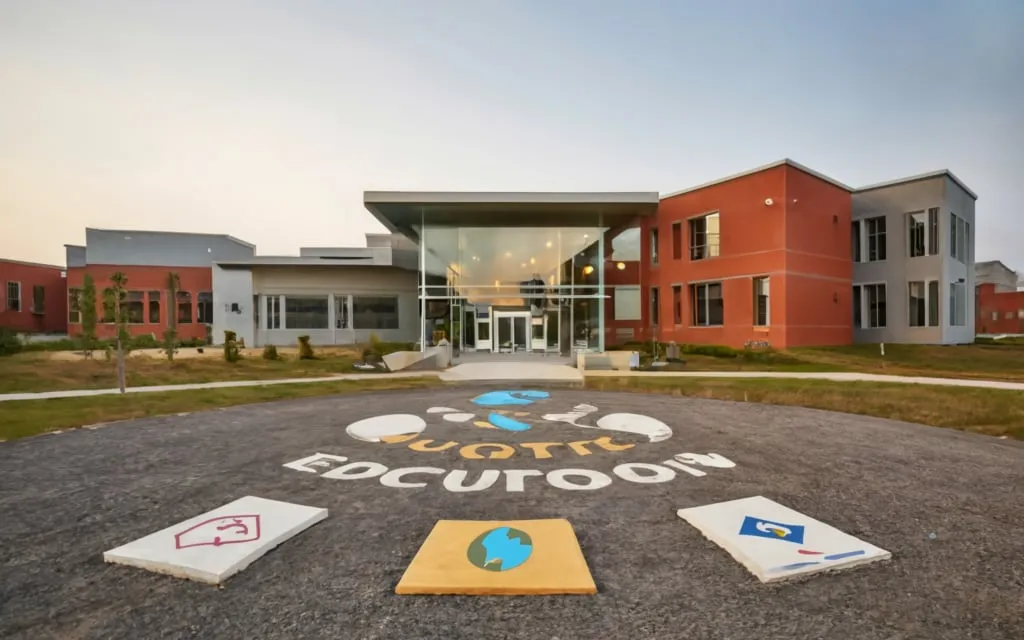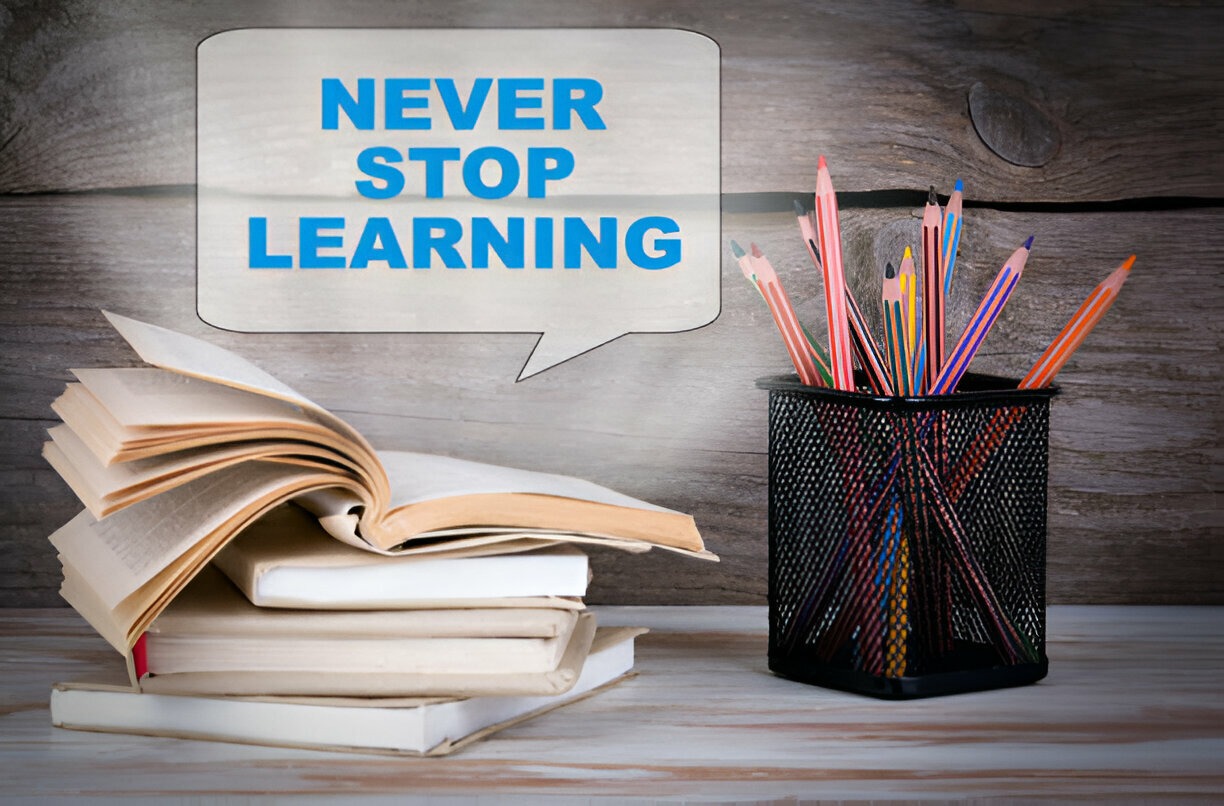When it comes to raising happy, healthy kids, childcare and education play key roles. From the early years to the teen years, the right support can help children grow, learn, and thrive. Let’s explore how childcare and education work together to give kids a strong start in life.
The Basics of Childcare & Education
Childcare and education are more than just places to drop off kids. They’re spaces where children learn, make friends, and develop important skills. Good childcare and education programs help kids:
- Learn new things
- Develop social skills
- Grow emotionally
- Stay healthy and active
These programs come in many forms, from daycare centers to schools. Each type offers unique benefits for children at different stages of growth.
Early Childhood Care: The Foundation
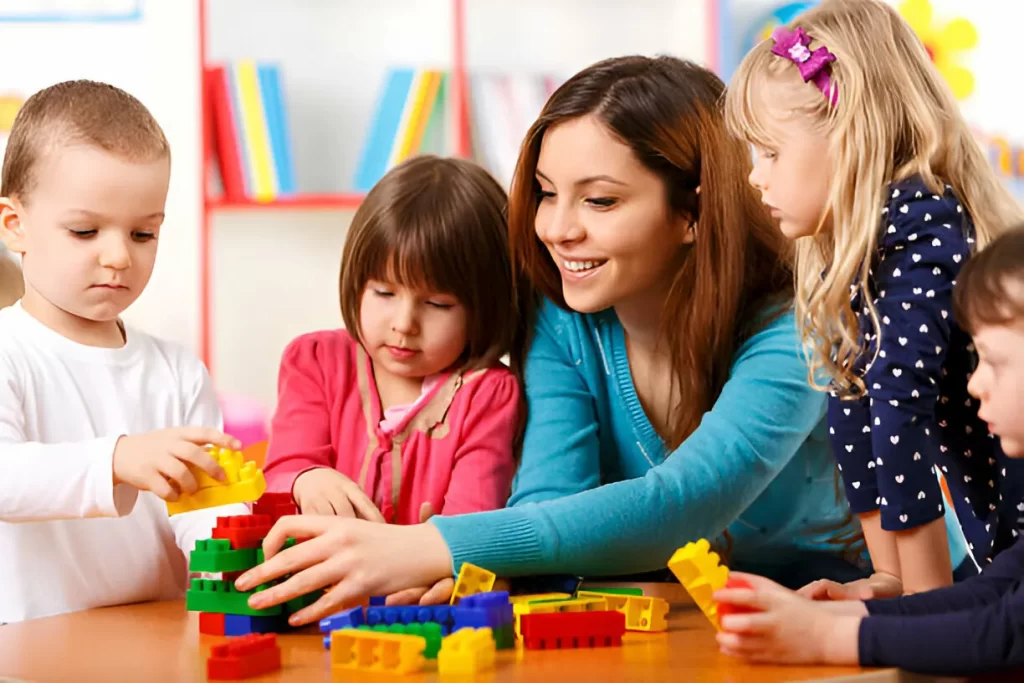
Starting Strong: Early Childhood Care
The first few years of a child’s life are crucial. That’s where early childhood care comes in. This type of childcare and education focuses on kids from birth to age 5.
What Early Childhood Care Offers
- Safe, nurturing environments
- Age-appropriate activities
- Social interaction with peers
- Basic skill development
Early childhood care helps set the stage for future learning. It gives kids a chance to explore, play, and grow in a safe space.
Types of Early Childhood Care
- Home-based care
- Daycare centres
- Preschools
- Kindergartens
Each option has its benefits. Parents can choose based on their needs and what works best for their child.
Elementary Education: Building on the Basics
Growing and Learning: Elementary Education
As kids grow, their childcare and education needs change. Elementary education picks up where early childhood care leaves off.
What Elementary Education Covers
- Reading and writing
- Math skills
- Science and social studies
- Arts and physical education
Elementary schools help kids build on what they learned in early childhood. They introduce new subjects and more complex ideas.
Key Features of Elementary Education
- Structured learning environments
- Trained teachers
- Curriculum-based instruction
- Regular assessments
Good elementary education programs balance academics with social and emotional growth. They help kids develop a love for learning that can last a lifetime.
After-School Programs: Extending the Learning Day
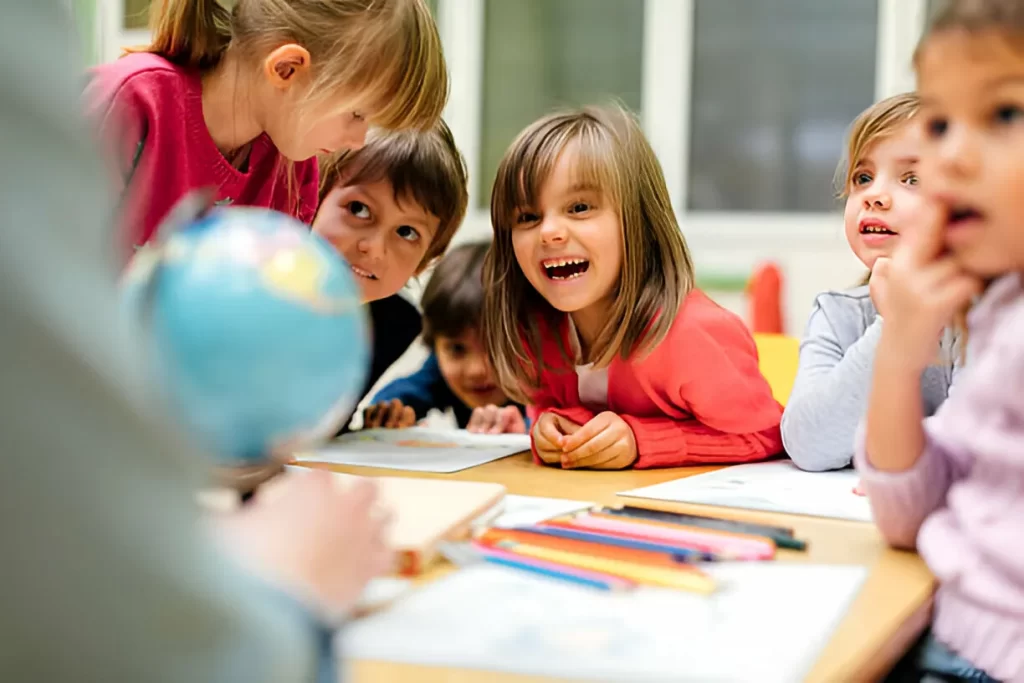
Beyond the Bell: After-School Programs
Childcare and education don’t stop when the school day ends. After-school programs offer extra support and activities for kids.
Benefits of After-School Programs
- Homework help
- Enrichment activities
- Safe supervision
- Social interaction
These programs can be especially helpful for working parents. They provide a safe place for kids to be while parents finish their workday.
Types of After-School Programs
- School-based programs
- Community center programs
- Sports and arts programs
- Tutoring services
After-school programs can help kids explore new interests and build skills beyond what they learn in school.
Special Needs Support: Inclusive Childcare & Education
Supporting All Learners: Special Needs in Childcare & Education
Every child ought to be given the chance to develop and learn. That’s why many childcare and education programs offer support for kids with special needs.
What Special Needs Support Looks Like
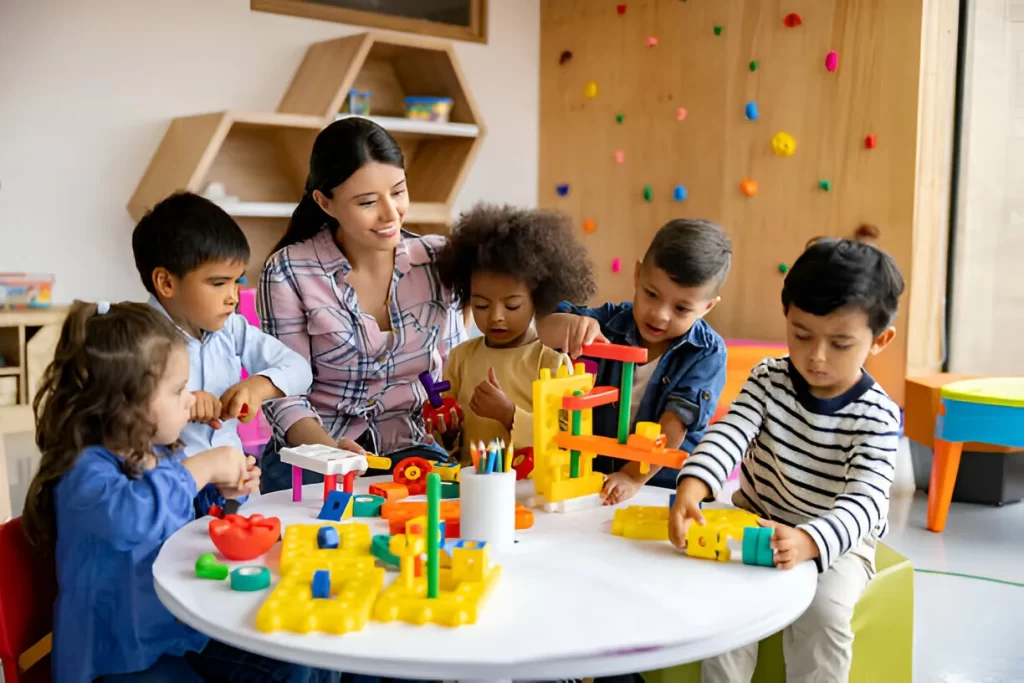
- Individualized learning plans
- Adaptive equipment
- Specialized instruction
- Support Staff
These services help ensure that all kids can participate fully in childcare and education programs.
Types of Special Needs Support
- In-classroom support
- Pull-out services
- Therapy services
- Assistive technology
With the right support, kids with special needs can thrive alongside their peers in childcare and education settings.
Technology in Childcare & Education
The Digital Classroom: Technology in Childcare & Education
In today’s world, technology plays a big role in childcare and education. From tablets to online learning platforms, tech tools are changing how kids learn.
Also Read: Educational Specialist Programs: Advance Your Career in Life
Benefits of Technology in Learning
- Interactive lessons
- Personalized learning paths
- Access to information
- Skill-building games
When used well, technology can make learning more fun and engaging for kids.
Balancing Screen Time
While technology can be helpful, it’s important to balance screen time with other activities. Good childcare and education programs know how to use tech without overdoing it.
Choosing the Right Childcare & Education Options

Finding the Best Fit: Choosing Childcare & Education
With so many childcare and education options out there, how do parents choose? Here are some things to consider:
- Your child’s age and needs
- Your family’s schedule
- The program’s philosophy
- Quality of staff and facilities
- Finding the ideal fit may take some time.
Finding the ideal fit takes time, and that’s alright. Many parents tour several programs before making a choice, childcare education institutes.
Questions to Ask
When looking at childcare and education options, ask about:
- Daily schedules
- Teaching methods
- Safety practices
- Parent involvement
- Staff qualifications
The more you know, the better you can choose a program that works for your family.
The Future of Childcare & Education
Looking Ahead: The Future of Childcare & Education
As the world changes, so do childcare and education. Here are some trends to watch:
- More focus on social-emotional learning
- Increased use of technology
- Greater emphasis on outdoor and nature-based learning
- More flexible scheduling options
These changes aim to meet the needs of today’s families better and prepare kids for the future.
Closing Thoughts
Childcare and education play huge roles in shaping a child’s future. From early care to elementary school and beyond, each stage offers chances for growth and learning.
By choosing the right programs and staying involved, parents can help their kids build strong foundations for success.
Remember, every child is unique. One’s success may not translate to another’s. The key is to find childcare and education options that support your child’s individual needs and help them thrive.
With the right support, kids can develop the skills and confidence they need to succeed in school and life, childcare institute education.
FAQs:
What age should a child start preschool?
Most children start preschool between ages 3 and 5. The best age depends on your child’s development and your family’s needs. Some kids are ready at 2, while others may benefit from waiting until 4.
How do I choose a good daycare?
Look for licensed facilities with trained staff, safe environments, and age-appropriate activities. Visit several centers, ask about their policies, observe how they interact with children, and check references from other parents.
What’s the difference between daycare and preschool?
Daycare focuses on basic care and usually accepts younger children. Preschool is more education-focused, typically for ages 3-5, and prepares kids for kindergarten. Some centers offer both services.
How can I help my child succeed in school?
Stay involved in their education, create a good study environment at home, read together daily, communicate with teachers, and encourage a positive attitude toward learning.


